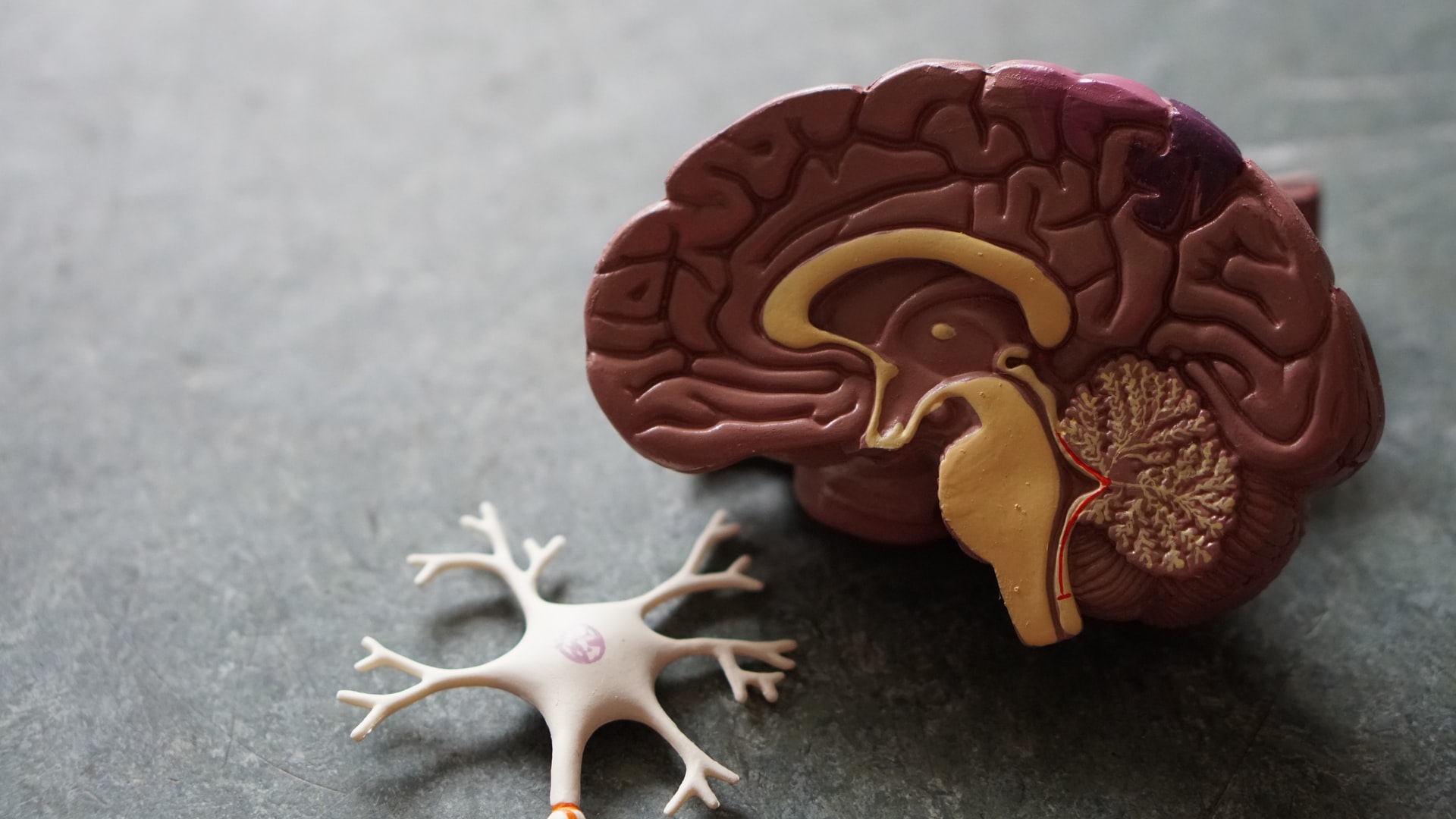A research team has found that a certain type of protein in the mouth can have a range of benefits, including potentially preventing Alzheimer’s Disease and gum disease. The protein SCPPPQ1 seems to be able to stop or lessen the effect of the bacteria Porphyromonas gingivalis. This bacteria is known to cause a range of physical and oral health problems. This is an exciting finding, and could benefit millions of people around the world.
Recent research has shown that a certain type of protein in the mouth could protect us from Alzheimer’s Disease and potentially gum disease. This is because of its antimicrobial properties.
Particularly, the antimicrobial properties of the SCPPPQ1 protein seems to protect against the bacteria Porphyromonas gingivalis. This bacteria causes gum disease, and also appears to be linked to neurodegenerative diseases like Alzheimer’s disease.
This exciting finding adds to the theory that proteins in the mouth have the potential to help physical health. Mouth proteins are best associated with oral health benefits.
Background
This research involves measures against Alzheimer’s disease and gum disease. Alzheimer’s disease is classed as a neurodegenerative condition that is characterised by cognitive decline. Approximately 1 in 6 people over the age of 80 have Alzheimer’s disease [1].
Gum disease can cause several problems. Gum disease involves inflammation of the gums. This is caused by a build-up of plaque and bacteria. As a result, this causes tooth decay and impacts overall oral health.
Several bacteria types are known to contribute to bone loss in gum disease, which can cause eventual tooth loss [2]. One of the main culprits is the bacteria Porphyromonas gingivalis.
Porphyromonas gingivalis is known to cause gum disease, which is one of the main risk factors in the development of Alzheimer’s disease [3]. Therefore, any way of lessening the impact of Porphyromonas gingivalis can be highly valuable.
The research
The study was done by researchers at the University of Montréal in conjunction with Quebec-based Université Laval and McGill University. Their findings were published in the Nature Scientific Reports journal [4].
The researchers conducted an in silico analysis, which involves a computer simulation [4]. They incubated the gingivalis bacteria with a protein called SCPPPQ1 [4]. They then waited to see how the bacteria would react.
The combination resulted in a decrease in the number of bacteria present [4]. This suggested that the SCPPPQ1 protein was able to lessen the effect of the harmful bacteria.
The researchers then investigated how it reacted with the epithelium – which is where this protein is located [4]. The epithelium is the part of the gum that seals off tooth-supporting tissues from the rest of the mouth.
They play an important role in our oral health, especially as the teeth are a critical location for the entry of bacteria. Because these proteins come from the epithelium, the fact that the bacteria’s development can be slowed or even destroyed is excellent news [4].
The investigation found that disruption to the epithelium was significantly lessened. Therefore, the results of this study suggest that both gum disease and Alzheimer’s disease have their development negatively affected by the protein [4].
What this means
This research shows the importance of our oral health. As gum disease affects so many people, and has a huge effect on many areas, we need to try and keep our mouth healthy. Therefore, having excellent oral hygiene, including brushing our teeth a minimum of twice a day, flossing, and attending regular dental check-ups, is crucial.
Charline Mary, the principal author of this study, commented on the findings [5]. Mary said “the antibacterial potential of the SCPPPQ1 protein could be exploited not only to limit periodontal disease but also as a treatment approach to check the effects of bacteria in the brain or at other sites to which they spread” [5].
In another positive finding, Mary also suggested that the SCPPPQ1 protein could “offer an additional strategy for addressing the problem of bacterial resistance” [5]. It seems that the SCPPPQ1 protein can be highly-effective in many ways.
The results of this study suggest that the protein SCPPPQ1 has antimicrobial properties. The researchers stated that the next part of their research will analyze what effect the addition of SCPPPQ1 to toothpaste could have, particularly its ability to destroy bacteria which has already penetrated the epithelium [5].
Thinking points…
1) Gum disease can be very damaging, but is avoidable. Many people underestimate the importance of our gums. If you want to see how the health of your gums are, it is important to see your dentist for a check-up. Remember, the earlier any problems are spotted, the easier treatment is.
2) Do you know anyone with Alzheimer’s disease, or early-onset dementia? The findings of this study shows that oral health can affect cognitive disorders and potentially slow their development. Therefore, it is important to emphasize to them how important it is that they have strong oral hygiene. Consider recommending booking an appointment to them.
What we offer at Taradale Dental
Taradale Dental is a Calgary dental clinic that provides a warm welcome and comfortable experience to its patience whenever needed.
We recommend that our patients attend our Calgary-based dental clinic twice a year for a regular dental check-up. When problems are detected, we have many treatments available. For instance, these include cavity fillings and root canals. We also have some cosmetic treatments too!
Importantly, we recommend brushing your teeth at least twice a day and flossing regularly. Moreover, eating healthily and trying to avoid sugary foods and drink is helpful.
In addition, all of our services at our Calgary dental clinic Taradale Dental are in line with the Alberta Dental Fee Guide.
We would love you to visit our dental clinic, Taradale Dental in Calgary! You can find out more about us by visiting our website https://taradaledental.ca.
References
[1] NHS Choices. (2021). Alzheimer’s Disease. Available: https://www.nhs.uk/conditions/alzheimers-disease/. Last accessed: 11th February 2022.
[2] Tominari, T., Sanada, A., Ichimaru, R., Matsumoto, C., Hirata, M., Itoh, Y., Numabe, Y., Miyaura, C., & Inada, M. (2021). Gram-positive bacteria cell wall-derived lipoteichoic acid induces inflammatory alveolar bone loss through prostaglandin E production in osteoblasts. Scientific Reports. 11 (13353). DOI: https://doi.org/10.1038/s41598-021-92744-5.
[3] Dominy, S. S., Lynch, C., Ermini, F., Benedyk, M., Marczyk, A., Konradi, A., Nguyen, M., Haditsch, U., Raha, D., & Potempa, J. (2019). Porphyromonas gingivalis in Alzheimer’s disease brains: Evidence for disease causation and treatment with small-molecule inhibitors. Science Advances. 5 (1): eaau3333. DOI: https://www.doi.org/10.1126/sciadv.aau3333.
[4] Mary, C., Fouillen, A., Moffatt, P., Bello, D. G., Wazen, R. M., Grenier, D., & Nanci, A. (2021). Effect of human secretory calcium‑binding phosphoprotein proline‑glutamine rich 1 protein on Porphyromonas gingivalis and identification of its active portions. Scientific Reports. 11 (23724). DOI: https://doi.org/10.1038/s41598-021-02661-w.
[5] Université de Montréal. (2022). A protein in the gums may help prevent Alzheimer’s. Available: https://nouvelles.umontreal.ca/en/article/2022/02/08/a-protein-present-in-the-gum-may-help-prevent-alzheimer-s/. Last accessed: 11th February 2022.




[…] Research Team Has Found That a Certain Type of Protein in the Mouth Can Potentially Preventing Alzheimer’s Disease and Gum Disease […]